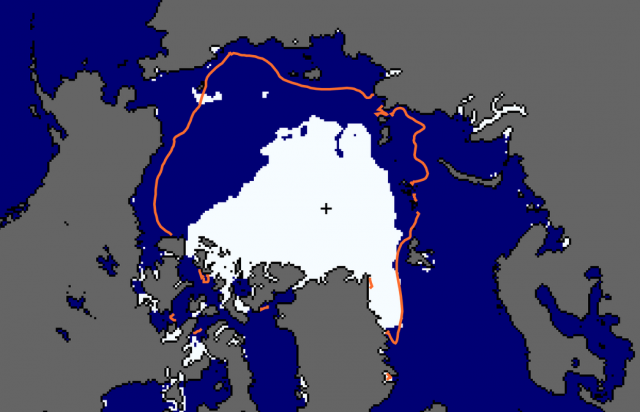Arctic sea ice coverage plunges to record low

Our planet's warming climate has been felt most strongly in the Arctic, and the ice that covers much of the sea has been responding accordingly. Although large areas of the Arctic Ocean freeze over every winter and spring (without sunlight, things are guaranteed to get very cold), the amount of ice cover seen during the melt season has been edging down since we started monitoring by satellite. Now, a combination of the general climate trends and an unusual weather event have pushed the Arctic ice cover to record lows and, with several weeks left in the melt season, the final low could be a dramatic one.
The annual rhythm of the Arctic Sea's changes looks a bit like a heartbeat. Ice starts to expand and thicken in the autumn, and reaches its peak in the early spring, a few months after the coldest part of winter. The ice then contracts, with the area covered shrinking throughout the spring and summer, and bottoming out in the first weeks of September.
Climate change hasn't stopped that cycle, but it has altered it in dramatic ways. Ice still expands rapidly in the autumn and winter—in fact, over the last few springs, the area covered with ice has often approached the average seen in the last few decades of the 20th century. (That includes this year, where May saw ice coverage that nearly reached the 1979-2000 average.)
However, the losses in recent summers, including the dramatic decline in ice seen in 2007, has changed the character of the heartbeat. Very little of this newly formed ice, which is relatively thin, can survive the warm temperatures of the summer. As a result, every year since 2007 has seen the loss of most of the thin ice formed during the winter, leading to a series of summer melts that were well below the baseline average of the satellite record.
http://arstechnica.com/science/2012/08/arctic-sea-ice-coverage-plunges-to-record-low/
